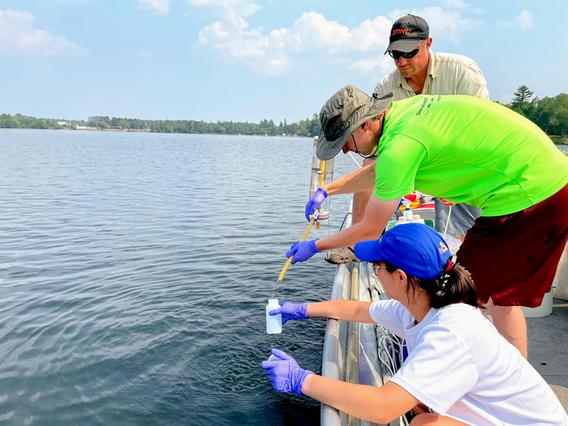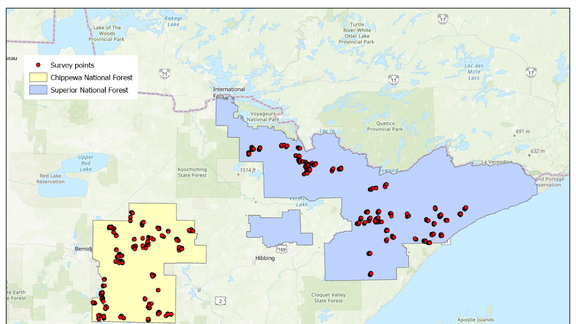About Strategic Initiatives
To meet our mission of delivering integrated research solutions, NRRI is focused on three strategic initiatives that address the challenges of Minnesota’s resource-based economy. These initiatives are bold and long-term efforts to create the economy of the future by incorporating diverse expertise across NRRI, the University system and with our partners.
Initiative Overview

Understanding the ecosystems we live in and the benefits they offer is critical to characterizing, mitigating, remediating and avoiding harmful societal impacts. Science-based data is needed to make sound, natural resource decisions as we respond to climate change, consider aspects of environmental and social justice, define and maintain the social license to operate, and identify viable options as we develop the economy of the future.
Impact
Minnesota has a wealth of natural resources that support economic development and wildlife conservation. NRRI’s Ecosystem Resilience Initiative addresses the challenges of human-caused impacts and the ability of water resources to absorb the various disturbances and reorganize while maintaining critical functions for wildlife and environmental health.
Goal
Document ecosystem relationships and develop tools to monitor, remediate and manage water resources – from water source to the end of the pipe. This highly collaborative Initiative pulls from all of NRRI’s expertise platforms to address the complexity of Ecosystem Resilience and understand how to balance economic drivers with environmental stewardship.
Partners
- International Joint Commission
- State / Federal / Local governmental agencies
- NGOs: Canadian Wildlife Service, Environment and Climate Change Canada, Great Lakes Audubon, American Bird Conservancy, Smithsonian Migratory Bird Center, Shedd Aquarium, Daniel P. Hearther Center for Conservation Research, Alfred Wegener Institute Helmholtz Centre for Polar and Marine Research, Michigan State University, Cary Institute of Ecosystem Ecology, Universite de Montreal, UC Santa Barbara
- Industry Partners: Minnesota Power, Yawkey Mineral Management LLC, UPM/Blandin
- Minnesota Land Trust
- Tribal Partners: 1854 Treaty Authority, Leech Lake Band of Ojibwe
- National and Global University Partners
- University of Minnesota system
- Municipal Wastewater Treatment Plants
Ecosystem Resilience Projects

The Minnesota Fisher Den Box Project is focused on evaluating an emerging habitat management tool to address the declining MN fisher population.

A website of the state's carnivore species -- from the tiny least weasel to the black bear.

Documenting long-term population trends of breeding forest birds in the Chippewa and Superior National Forests.
Recent News

From the tree tops to boots on the ground, this avian ecologist enjoys his role in informing forest management

More than ‘just the facts,’ researchers lean into ‘acts’ and ‘pacts’ to address challenges of a changing world

Temperatures and habitat changes push species into ‘Zone of Sympatry’ with northern cousins.

Technology Review Board vets proposals via ‘shark tank’ style pitches.